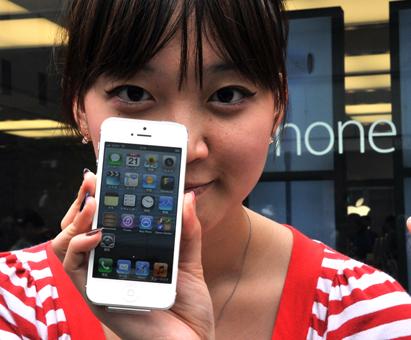Hooray! The iPhone 5 is coming to town and, by most accounts, it’s awesome. If you’re not completely excited by this, then that probably means that you’re either an Android supporter and hate Apple or you’re a new consumer who doesn’t know what to be excited about (hint: epic 4G capabilities, among other things). The improvements to the iPhone are, in many ways, phenomenal. Of course, despite all these improvements, there’s still one thing that this device can’t completely address: security.

No matter how advanced a device appears to be, you cannot completely avoid security risks and threats to the information you’ll be fielding with your smartphone – especially if you’re using it as a business phone. Given the overall popularity of iPhone now and in the past, it wouldn’t be surprising if it ends up being less secure than most other smartphones. Hackers, after all, love it as much as anyone else does.
In light of this and the recent iPhone 5 launch, it may actually be prudent to recall some of the best strategies for protecting your Apple smartphone from malicious information poachers.
Never give password protection a pass
This sounds so simple, and yet many people let it completely slip their minds. Having a password that you change on a regular basis ensures that it will be difficult for other people to get access to the contents of your iPhone if they can’t get into it. The automatic locking mechanism of your phone is useless if a person can unlock it without a password anyway. If you’re worried about losing your iPhone, just install a tracking application on it.
Resist being “always on”
For many people, it’s become a habit to leave WiFi, Bluetooth, and the like on all the time for the sake of convenience. This is a very bad idea if you want to protect your phone from hackers. Being always on leaves you “always open” for people who want access to your private information. Basically, you’re like prey advertising its location to the predator when you do this. It’s really not a smart thing to do. So get into the habit of turning off Bluetooth and WiFi when you’re not really using them. That way, you decrease the chance of being caught in a hacker’s net.
Always have a back up plan
It’s tempting to have everything on your iPhone because it’s so easy to carry around without limiting your access to the information you need. That’s all well and good until you click the wrong link and all your information either gets stolen or corrupted. That’s why you need to set a schedule for backing up all the data you have on your phone. When you do that, you not only have a copy of the information you potentially lost but also a means of keeping track of the details the threat has gleaned off your company. Damage control is easier when you have this in place.
Use the right software
You may think that not updating your software immediately isn’t a big deal – but if we’re talking about security, it is. Software updates don’t just ensure that your device is performing at its best capacity; they also ensure that you’re protected from new malware-type threats. If you want more fortification, you can also download apps that allow you to erase data remotely and encrypt your SMS messages. There are many security apps for the iPhone that are available right now, and you’d be wise to invest in them for the sake of your business.

